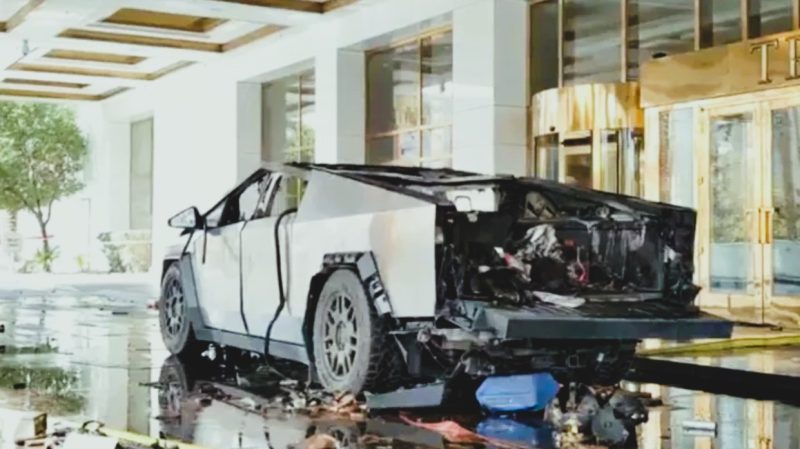
On January 1, 2025, a Tesla Cybertruck detonated outside the Trump International Hotel in Las Vegas, claiming the life of the driver and injuring seven bystanders. This catastrophic event has provoked widespread concern and sparked a comprehensive investigation into the underlying causes and motivations. Public and media scrutiny has intensified as federal authorities delve into the circumstances of the explosion.
Driver’s Identity and Background
The driver, 37-year-old Matthew Livelsberger, was an active-duty U.S. Army Special Forces sergeant stationed in Germany and on leave during the incident. Reports indicate that Livelsberger died by a self-inflicted gunshot wound prior to the explosion. This unexpected and disturbing act has added layers of complexity to the investigation. Friends and colleagues described him as a disciplined and dedicated military professional whose prior behavior did not suggest any signs of distress or instability.
Insights into Livelsberger’s Character
Livelsberger’s family portrayed him as a highly patriotic individual, often likened to a “Rambo type.” He was an ardent supporter of former President Donald Trump and frequently showcased his devotion to the military and the nation through social media posts. His uncle emphasized Livelsberger’s unwavering dedication to safeguarding lives, expressing profound shock at his apparent involvement in such a destructive act. The family’s struggle to reconcile this event with their perception of him highlights the enigmatic nature of his motivations.
Evidence of Intentional Planning
Investigators discovered the Cybertruck loaded with gas canisters, camping fuel, and large-scale fireworks, signaling meticulous preparation. This array of materials strongly suggests a premeditated act. The FBI has classified the incident as a potential terrorist attack, although Livelsberger’s exact motives remain ambiguous. To uncover additional insights, authorities are examining his digital communications, including emails and social media interactions, searching for any indicators of ideological or personal triggers.
Lack of Connection to Other Incidents
While another vehicular attack occurred in New Orleans on the same day, the FBI has found no substantive link between the two events. Authorities have stressed that these incidents appear to be unrelated, although the coincidental timing has fueled speculation. Law enforcement officials continue to analyze both cases independently, seeking to dispel public fears while addressing safety concerns.
Tesla’s Official Statement
Tesla CEO Elon Musk confirmed that the explosion stemmed from external materials placed in the truck’s bed, unrelated to any mechanical or structural issues with the vehicle. Musk also underscored the Cybertruck’s resilient design, which may have mitigated the extent of the damage. Tesla has pledged full cooperation with investigators and reassured customers of the vehicle’s safety features. Analysts have noted that the Cybertruck’s engineering likely prevented even greater devastation, highlighting its robust construction as a key factor in minimizing casualties.
Broader Context and Implications
The ongoing investigation has prompted discussions among experts in criminal behavior and counterterrorism regarding potential ideological or psychological factors behind the act. This incident has also reignited debates about public space security and the evolving use of vehicles in attacks. Authorities are reevaluating safety protocols and identifying gaps to preempt similar events in the future. This tragedy serves as a sobering reminder of the multifaceted challenges faced in maintaining public safety amidst increasingly complex threats.
